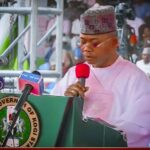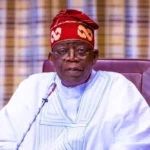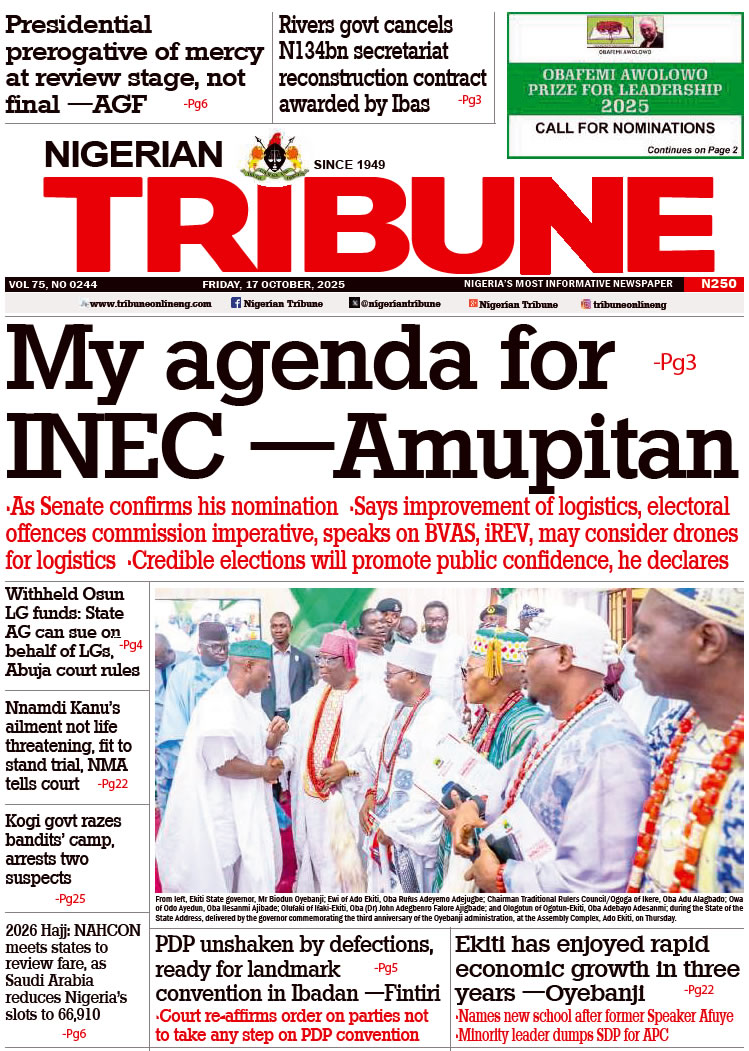Perhaps nothing is as daunting as developing the difficult terrain of the Niger Delta and rooting out the endemic poverty, despair, and restiveness that are the trademarks of the oil-rich region.
The Niger Delta Development Commission (NDDC), an interventionist agency established by former President Olusegun Obasanjo, has the mandate to provide critical infrastructure needed to jumpstart the socioeconomic development of the region.
One of the ways the NDDC is adopting to achieve its mandate is through frequent stakeholder engagement across the nine states under its purview.
Just last week, the NDDC board and management mounted a two-day retreat to chart a direction towards the achievement of its mandate and the renewed hope agenda of Mr President.
This is why the Niger Delta Development Commission was established to undertake the task. With the mandate to offer a lasting solution to the socio-economic difficulties of the Niger Delta Region and to facilitate the rapid and sustainable development of the Niger Delta into a region that is economically prosperous, socially stable, ecologically regenerative, and politically peaceful.
The retreat, which was held at the Four Points by Sheraton Hotels in Ikot Ekpene, Akwa Ibom State, witnessed the signing of a performance bond between the Niger Delta Development Commission (NDDC) and the Ministry of Niger Delta Development.
The signing of the performance bond is explicit of the commitment of the commission to achieving the objectives of the President Bola Tinubu administration’s Renewed Hope Agenda.
In view of its importance, the Minister of Niger Delta Development, Engr. Abubakar Momoh, supervised the signing ceremony. The Chairman of the NDDC Governing Board, Mr. Chiedu Ebie, the Managing Director, Dr. Samuel Ogbuku, and the Executive Directors signed on behalf of the NDDC.
Apart from the performance bond endorsement, the two-day NDDC Board and Management Retreat
had the Minister mandating the NDDC to review and update the Niger Delta Regional Developmental Master Plan, as it is a crucial framework for guiding and implementing development initiatives in the region, noting that there can be no sustainable development without intentional developmental plans carefully put down.
The need for the two-day board and management retreat in a serene environment like Akwa Ibom State, according to the organisers, was to set a strategic direction for the 7th Governing Board of the Niger Delta Development Commission (NDDC) and was inspired by the desire to consolidate Mr President’s Renewed Hope Agenda within the Niger Delta region.
The two-day convocation at the Four Star Sheraton Hotels in Akwa Ibom State from Friday, February 9th, to Saturday, February 10th, 2024, was the first time in history that former chairmen and managing directors of the commission were invited to be part of the commission’s board & management retreat, giving it full-scale engagement of key stakeholders to reposition the commission.
At the end of the second day of the retreat, with the theme “Renewed Hope: A New Era for Vitality, Peace, & the 7th Governing Board and Management of NDDC received accolades for the initiative from participants and stakeholders for setting a new record for development in the oil-rich region.
Following Welcome remarks by the Chairman, Governing Board, MD/CEO’s address, and goodwill messages by key stakeholders, Paper presentation by seasoned Resource persons, After a review of the presentation and question-and-answer sessions over the course of the 2 days, strategic resolutions were reached.
It was resolved that a reviewed and updated Niger Delta Regional Developmental Masterplan remains a crucial framework for guiding and implementing development initiatives in the Niger Delta, as there can be no sustainable development without developmental plans.
The retreat frowned at frequent changes in the governing board of the commission, saying such has largely accounted for the challenges in project execution and delivery in the development of the region.
Thus, the Federal Government is urged to ensure that the current and subsequent Boards complete their tenure and that there is continuity in succeeding Boards to ensure the sustainability of the Commission’s projects.
Endorsed by the Chairman of the NDDC Governing Board, Mr Chiedu Ebie, and the Managing Director, Dr Samuel Ogbuku, the communiqué stressed the need for proper synergy, collaboration, and a coordinating framework between the Ministry of Niger Delta Development, state governments in the regions, the NDDC, and development partners.
“Procurement is at the heart of governance and one of the government activities most vulnerable to corruption. Therefore, the Board and Management of the NDDC must effectively discharge their responsibility to manage the procurement process, involving all stakeholders, without sacrificing the core objectives as provided under the Procurement Act.
“There is the need for urgent release of all outstanding statutory contributions of the Federal Government to the NDDC fund, as the non-release of these funds has significantly hampered the ability of the Commission to deliver on its mandate.
“In view of the peculiar construction window of the Niger Delta region, there is the need for some form of financial autonomy for the NDDC outside the Treasury Single Account (TSA) regime. This is part of the process of getting the Commission to take advantage of traditional credit sources to complete its projects and deliver real impact and sustainable development to the long-suffering people of the region.”. The communique’ resolved.
It points out the need for NDDC to ensure that its projects and programmes are procured in line with existing rules and laws, hence the need for the board and management to acquaint themselves with relevant rules in order to effectively discharge the responsibilities imposed under existing laws.
“The Managing Director/CEO, as the Chief Accounting Officer of the Commission, remains responsible for all procurement processes. The MD/CEO is encouraged to co-opt the Executive Directors and Heads of Departments during procurement planning for the Commission. While these officials will offer useful recommendations, the ultimate responsibility lies with the MD/CEO.
“The Commission should establish clear, measurable, achievable, relevant, and time-bound (SMART) goals that the Commission will demonstrably commit to and deliver upon, fostering increased public trust.
“The leadership of the Commission needs to consistently demonstrate their commitment to ethical principles through their decisions and behaviour.
“There is a need for the development of key governance policies and procedures to promote clarity of roles and minimise discord on the board, as well as a defined reporting framework covering key stakeholders and transparency.
“The main purpose of all reform must be the improvement of the lives of the people. Reforms tailored to the local context have a better chance of success. Therefore, the NDDC must deploy creativity and innovation to drive reforms and development in the region.”. It stated.
The need for intentional partnerships and conflict management was emphasised as imperatives to secure value, even as stakeholder engagement and management must be strategic and improved continuously.
The communiqué, however, describes the existence of political pressure on the operations of the Commission, calling on the Board and Management of the Commission to develop the political will to manage such unavoidable pressure.
Laying it bare that President Tinubu’s administration had established a template to measure the performance of all agencies of government during his address at the retreat, Engr. Abubakar Momoh, Minister of Niger Delta Development, challenged the NDDC Board and Management to change the narrative around the Commission, explaining that the performance bond signed by the NDDC Board and Management had deliverables that were associated with the eight presidential priorities of the Federal Government.
The Minister charged the Board to focus on completing ongoing projects across the nine states of the Niger Delta region as well as offset the Commission’s debt to its contractors, especially the local contractors, whose bills, according to him, were less than 30 million naira.
The all-important retreat was attended by the host governor, Pastor Umo Eno, who was represented by his deputy, Akon Eyakenyi, Ph.D., who called for collaboration between the Commission and the state governments in the region for better service delivery in line with the core mandates of the Commission.
Expressing optimism that the new board of NDDC will uphold its mandate and core responsibilities as an interventionist agency for the development of the Niger Delta region, Eno urged the team not to subvert its mandate for political reasons, promising to collaborate with the Commission for the delivery of dividends of democracy to the people of the state, and tasked the management with the involvement of the state government in its interventionist programmes based on needs assessment to avoid replication of projects.
It is on record that NDDC was established by the administration of President Olusegun Obasanjo as a federal government agency in 2000 with the sole mandate of developing the oil-rich Niger Delta region of Nigeria.
In September 2008, President Umaru Yar’Adua announced the formation of a Niger Delta Ministry, with the Niger Delta Development Commission to become a parastatal under the ministry.
One of the core mandates of the commission is to train and educate the youths of the oil-rich Niger Delta regions to curb hostilities and militancy while developing key infrastructure to promote diversification and productivity.
WATCH TOP VIDEOS FROM NIGERIAN TRIBUNE TV
- Relationship Hangout: Public vs Private Proposals – Which Truly Wins in Love?
- “No” Is a Complete Sentence: Why You Should Stop Feeling Guilty
- Relationship Hangout: Friendship Talk 2025 – How to Be a Good Friend & Big Questions on Friendship
- Police Overpower Armed Robbers in Ibadan After Fierce Struggle






